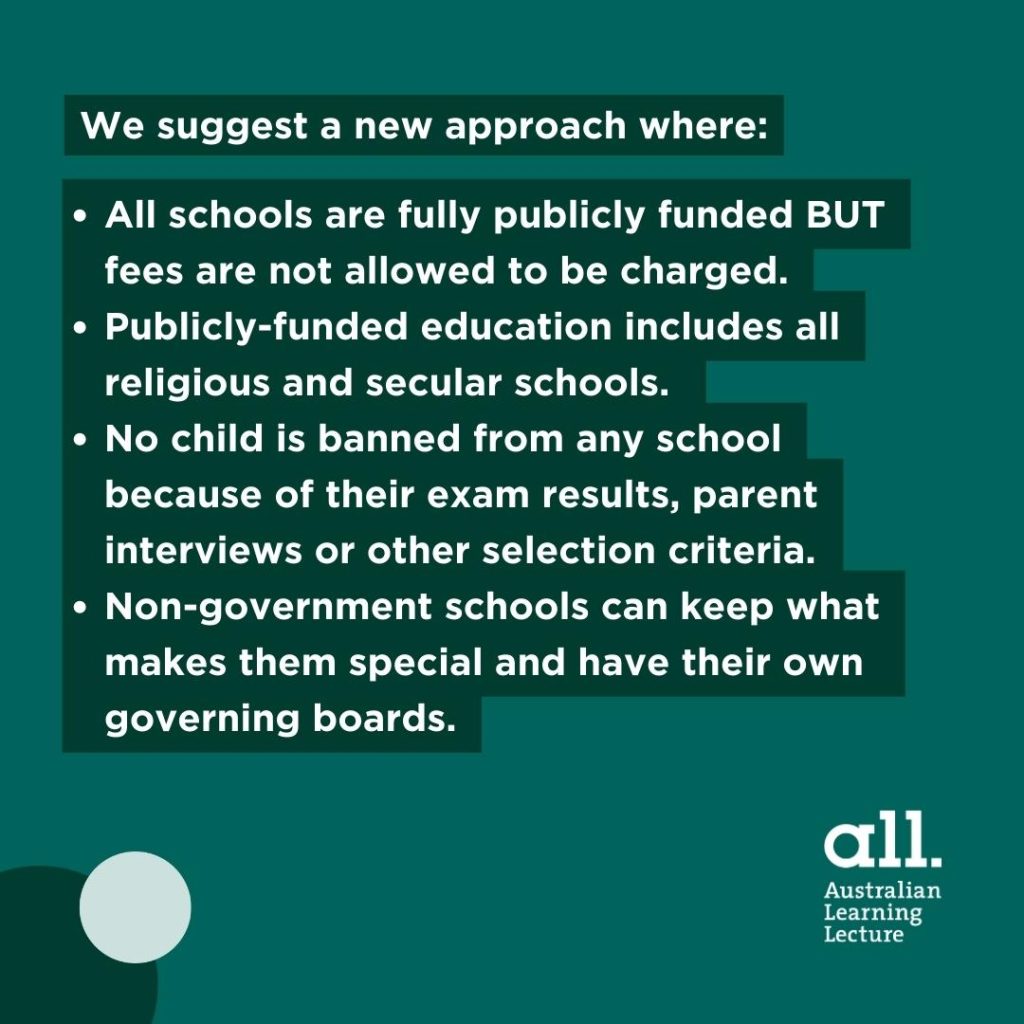Translate (
en
)
- af
- sq
- am
- ar
- hy
- az
- eu
- be
- bn
- bs
- bg
- ca
- ceb
- zh-CN
- zh-TW
- co
- hr
- cs
- da
- nl
- en
- eo
- et
- fi
- fr
- fy
- gl
- ka
- de
- el
- gu
- ht
- ha
- haw
- iw
- hi
- hmm
- hu
- is
- ig
- id
- ga
- it
- ja
- jw
- kn
- kk
- km
- ko
- ku
- ky
- lo
- la
- lv
- lt
- lb
- mk
- mg
- ms
- ml
- mt
- mi
- mr
- mn
- my
- ne
- no
- ps
- fa
- pl
- pt
- pa
- ro
- ru
- sm
- gd
- sr
- st
- sn
- sd
- si
- sk
- sl
- so
- es
- su
- sw
- sv
- tl
- tg
- ta
- te
- th
- tr
- uk
- ur
- uz
- vi
- cy
- xh
- yi
- yo
- zu
News & Events
What is a common framework?
April 19, 2023

Under a common framework all schools – whether they are in the Government, Independent or Catholic sectors – would be fully publicly funded, free to the user, and enrol students on a common, comprehensive basis.
A common framework of responsibilities and obligations would apply equally to all publicly funded schools guaranteeing that:
- all schools that receive public funding, whether they’re in the government or non-government sector, are free to the user and prohibited from charging fees
- all schools that receive public funding are open to children of all abilities, and prohibited from excluding children on the basis of entrance tests and other similar discriminators; non-government schools could continue to apply enrolment and other policies necessary to promote their specific religious or educational ethos
- non-government schools that accept these conditions are fully publicly funded to meet recurrent and capital costs on the same needs-basis as government schools
- non-government schools that continue to charge fees or reject inclusive enrolment obligations would no longer receive any public funding.
A common framework will eliminate the segregation that is a blight on our school system, ensuring that all children have the opportunity to thrive in more socio-economically mixed schools.
